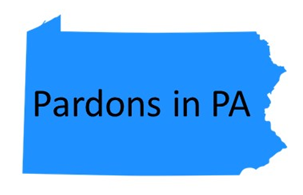Frequently Asked Questions
1. Can I obtain an application online?
a. Yes, See the  How to Obtain an Application for Clemency page.
How to Obtain an Application for Clemency page.
2. Do I need an attorney to apply?
a. No, you do not need an attorney to apply for a pardon. Please be advised that having an attorney will not expedite the process.
3. How long does the clemency process take?
a. Due to the proliferation of background checking since 9/11, our caseload has more than tripled. At the current rate, it is taking approximately 2 1/2 years from receipt of an application until the Board members merit review the application to determine if a hearing will be granted and about 4 years to go through the entire process. If a hearing is granted, it will be heard at the next scheduled session. Please be advised that if your application is recommended to the Governor, there is no time frame for the Governor to act on your case.
4. Can my application be expedited?
a. In July 2023, the Board announced a new expedited review program that will reduce the timeframe for consideration of those with older, non-violent crimes. Please review the criteria for that process  here. The Secretary is frequently asked to "expedite the process" to get a particular applicant's case before the Board. Because every applicant has a compelling reason for seeking clemency, it would be unfair to prioritize one applicant over another outside of the Board's set process.
here. The Secretary is frequently asked to "expedite the process" to get a particular applicant's case before the Board. Because every applicant has a compelling reason for seeking clemency, it would be unfair to prioritize one applicant over another outside of the Board's set process.
PLEASE NOTE: ALL applications must be completed following our filing instructions and submitted with all necessary documents to be accepted.
5. What does a pardon do?
A pardon relieves any legal disability resulting from a conviction. These disabilities include, but are not limited to:
The right to vote (only incarcerated felons suffer this disability in Pennsylvania, this varies by state)
The right to be a juror
The right to hold a public office
The right to bear arms
The opportunity to serve in the military
The right to obtain/carry a firearm
The right to travel internationally
6. Will my record be cleared if I'm granted a pardon?
- When the Governor signs your pardon application, both the Pennsylvania State Police (PSP) and the Federal Bureau of Investigations (FBI) are notified that executive clemency has been extended to you. Therefore, any subsequent inquiry made to either of these agencies would not yield any criminal history record(s) that you received a pardon for.
- It is important to note that unless a pardon recipient files a petition for expungement following the issuance of a pardon, their criminal history record(s) may still appear on the Unified Judicial System of Pennsylvania's Web Portal (which is not permitted to be used for background check purposes). However, on October 29, 2020, Governor Wolf signed House Bill 440 into law as Act 83 of 2020, which automatically seals all criminal history records from the Unified Judicial System of Pennsylvania's Web Portal that were pardoned by the Governor.
7. If I receive a pardon, and then I'm asked by an employer or future employer whether I have been convicted of a crime, can I say no? How can I get my record cleared?
Yes, you can say that you were never convicted of a crime because of the holding by the Supreme Court of Pennsylvania in Commonwealth of Pennsylvania v. Sutley, 378 A.2d 780 (Pa. 1977). The Court held that a pardon is defined as "the exercise of the sovereign's prerogative of mercy. It completely frees the offender from the control of the state. It not only exempts him from further punishment but relieves him from all the legal disabilities resulting from his conviction It blots out the very existence of his guilt, so that, in the eye of the law, he is thereafter as innocent as if he had never committed the offense." It is recommended, though, that such a denial be explained as based on the existence of a pardon.
However, in Pennsylvania a person may still be required to disclose a summary conviction after obtaining an expungement under the new Act 134. It appears that the only way for a person with a summary offense expunged under Act 134 to be legally protected in denying that they were convicted is if the expungement statute actually provided that protection.
8. Does having a victim in my case impact the scheduling of my hearing in any way?
a. Yes. Due to applicable provisions of Act 59 of 2021, any clemency applicant that has a victim or the surviving kin of a victim registered with either the Office of Victim Advocate (OVA), the Department of Corrections, or the Board of Pardons (or if their whereabouts are otherwise known), cannot be scheduled for a public hearing until at least sixty (60) days has elapsed since the date of their merit review hearing.
b. In addition, any clemency applicant serving a sentence of Life Without Parole (LWOP), or who was previously convicted for a crime of violence or any other offense resulting in death or serious bodily injury (regardless of whether their victim or the surviving kin is registered with any the aforementioned agencies), will not be scheduled for a public hearing until at least sixty (60) days has elapsed since the date of their merit review hearing.
Philadelphia Lawyers for Social Equity has been working with the Board of Pardons for several years to make the pardon process easier to understand and accessible to more people. Please visit PLSE's website to view their Video Library and Self-Help Section.
PLSE's Website: www.plsephilly.orgOpens In A New Window
You can also email them with questions at info@plsephilly.org.
